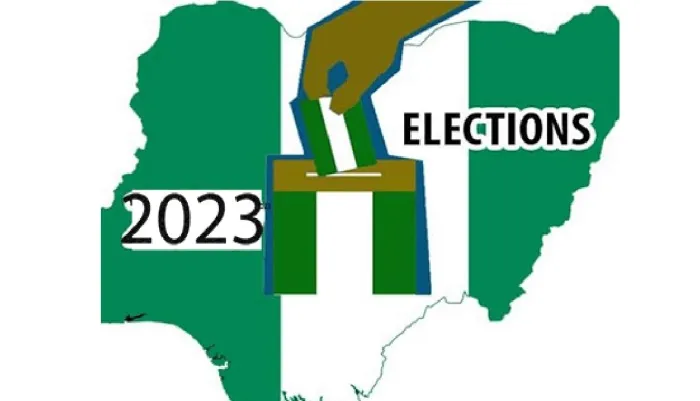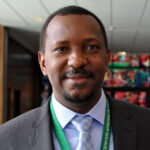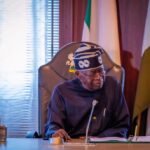As the 2023 election approaches 18 candidates vying for the presidency have now gone into full swing with their campaigns. Although the Independent National Electoral Commission (INEC) claims as always to be ready for the polls, it hardly ever is and there are the usual concerns about INEC’s operational capabilities. The electoral umpire will be required to recruit and train 1.5 million election officials and also transport election materials to remote areas where the road network is not even paved, and even the paved ones are in a state of total disrepair. It has always remained a wonder how INEC claims to have conducted elections in areas where regular travellers know it is not possible to go to and return the same day! There is no reason to believe that the cancelled results, delay in supplying electoral materials, problems with accreditation and malfunctioning of electronic equipment which INEC is famed for will not re-occur next year.
INEC aside, Nigerians will go to the polls influenced by statements made by contestants which leave a lot to be desired. If Nigerians choose to believe what the major candidates say, then none of them is fit to be president! The choice between an increasingly incomprehensible candidate whose only main campaign slogan is that it is his turn to rule Nigeria, and a former vice president rumoured to have sold off Nigeria’s assets at cut-throat prices and promising to do the same again, and a former governor who saved money rather than spend it is not appetising. There can be no denying that the candidates for the All Progressives Congress (APC), People’s Democratic Party (PDP) and Labour Party (LP) are yesterday’s men and the road ahead under any of them looks bleak.
One of the saddest aspects of the upcoming 2023 elections is that the attention is concentrated upon the presidency. Although 70 per cent of the National Assembly members will not be returning, Nigerians do not consider this important because nobody knows what they do other than share money and fail in oversight functions! It is also accepted that the Senate will continue to be a rubber-stamp chamber and retirement home for former governors.
As far as campaigning goes, the key issues of poor economy, insecurity and corruption which were highlighted in 2015 and 2019 are still present. To be frank, candidates routinely make promises which no one expects them to keep. The outgoing administration made lots of promises in 2015, failed to keep any of them and yet they were re-elected! This is a perfect indication that vigorous campaigning and excellent speech making is not what wins elections in Nigeria.
Why Nigeria needs to strengthen global peace efforts – UN scribe
NIGERIA DAILY: Real Reason Fuel Scarcity Keeps Lingering
In 2023, the electorate will place no premium on electoral promises; all they want is for those currently holding office to retire with their failed promises and give an opportunity to new ideas. The credibility of the election will depend on who votes and the degree to which the electorate can cast their votes freely. Without a thorough audit of the voters register, many foreigners who are already in possession of a permanent voters card (PVC) will cast their ballots. Earlier in September, the Nigerian Immigration Service arrested some foreign nationals with PVC’s claiming that porous borders and cultural affinities aid foreign nationals in acquiring Nigerian voting rights. While it is true that the elections will be conducted under a new powerful legal framework for conduct of elections that gives legislative backing for more transparent voting, collation and declaration of results, it is also true that if the recent governorship elections are anything to go by, then politicians will use vast sums of money as votes will be bought and sold. The Central Bank of Nigeria’s pathetic re-colouring of naira under the guise of “redesign” will do nothing to halt the use of money in elections.
There is little doubt that instead of concentrating on issue-based politics, vote buying will continue to flourish with cash, food materials and other goodies being handed out. In casting their votes, Nigerians are being asked not to pay attention to tribe or religion. The original meaningful Nigerian national anthem composed in 1959 acknowledged the reality of Nigeria’s ethnic diversity in the line “though tribe and tongue may differ in brotherhood we stand.” The very notion that Nigerians may be “detribalised” is fallacious. Tribal identity is not expendable, it is not a curable desease, it is to many Nigerians a source of pride. Indeed while it is possible to take the tribe out of the man, it is not possible to take the man out of the tribe. None of the contestants in the upcoming election can be said to be “detribalised.” However, what should really matter to Nigerians is that the incoming president possesses sensibility, sensitivity, and humanity and must not be knowledge challenged. He should have more than an elementary grasp of the nitty-gritty of the nation’s problems, and more than inept ideas or archaic unworkable solutions. He should be able to frustrate high-level corruption, kidnapping, and poverty in order to end the calls by increasingly disenchanted Nigerians to dismantle the nation. Since 1999 presidential; candidates have serially promised to carry out all the actions needed to move the nation forward, the promises were either abandoned or unfulfilled, consequently the nation has regressed. In 2023 promises should be kept this time round.

 Join Daily Trust WhatsApp Community For Quick Access To News and Happenings Around You.
Join Daily Trust WhatsApp Community For Quick Access To News and Happenings Around You.


